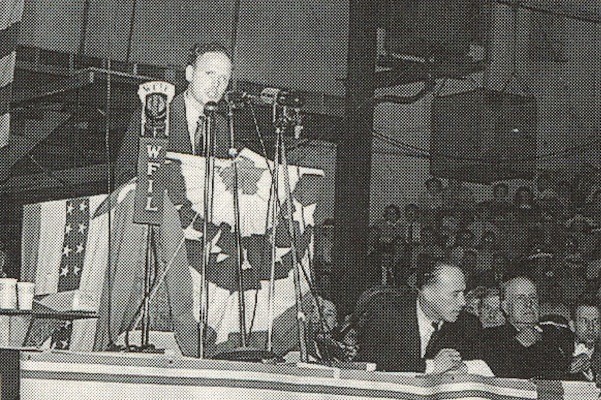
America First. In his big foreign policy speech yesterday, Donald Trump said that his guiding principle as president would be “America First.”
On the substance, there’s a good case to be made (from George Washington’s time onward) for interest-based, hard-headed realism as a basis for foreign policy — as John Judis has noted in response to Trump’s speech. But the term“America First” has a specific and nasty history, mainly because of the America First movement that essentially advocated accommodating Nazi interests on the eve of World War II. There’s a list of terms you’re wiser to avoid, no matter how deserving the underlying idea might be. “Separate but equal,” in the United States. “Cultural Revolution” or “Great Leap Forward” if you’re in China. “Final solution,” anywhere. In the realm of foreign policy, America First is one of these. You can make the point without using the phrase.
A reader in the tech industry writes to marvel about Trump’s using this term in what was billed as his most serious policy speech, and one of the few (along with his AIPAC address) that he read from a teleprompter:
What astonishes me about Trump’s “America First” speech is not that Trump himself apparently does not hear its awful echoes. Individuals sometimes have surprising gaps in their knowledge, though it’s sobering to know that millions of Republicans are now willing to vote for such a man.
But this wasn’t an ad lib to a heckler or an improvisation for the cameras. This was a speech. Even if Trump writes his own speeches—is that possible?—surely he has people to check the details, fix any mistakes, and type them up.
What is most frightening is not that Trump used the phrase, but that a room full of his advisors must have thought it was a good idea to use it. That one real estate never learned about Lindbergh and the German American Bund is unfortunate, but that in a room of high-level advisors, not one recognized this, is shocking.
***